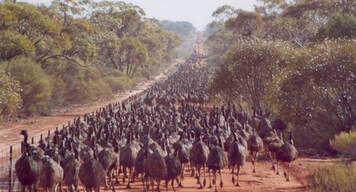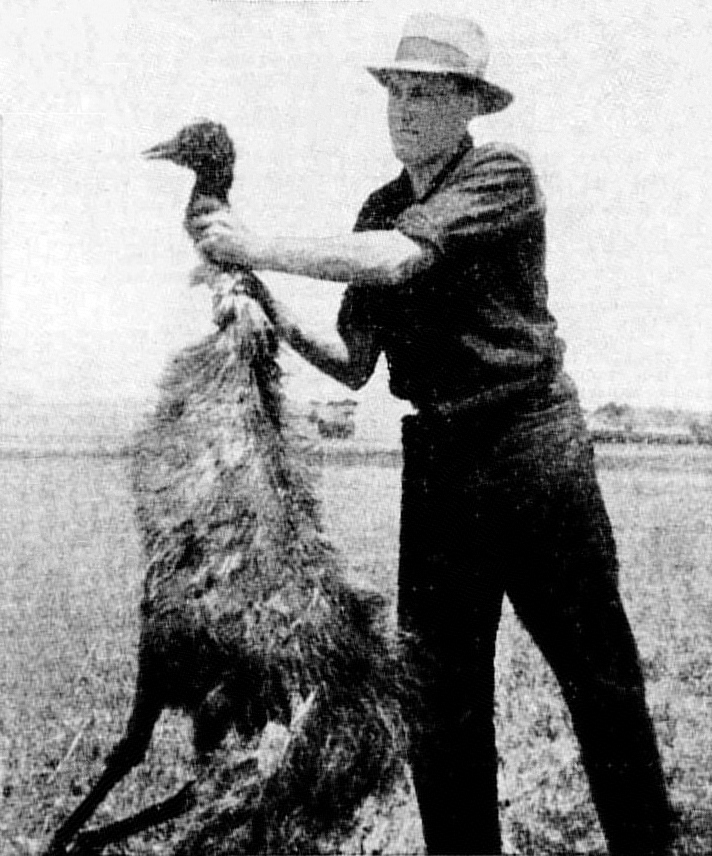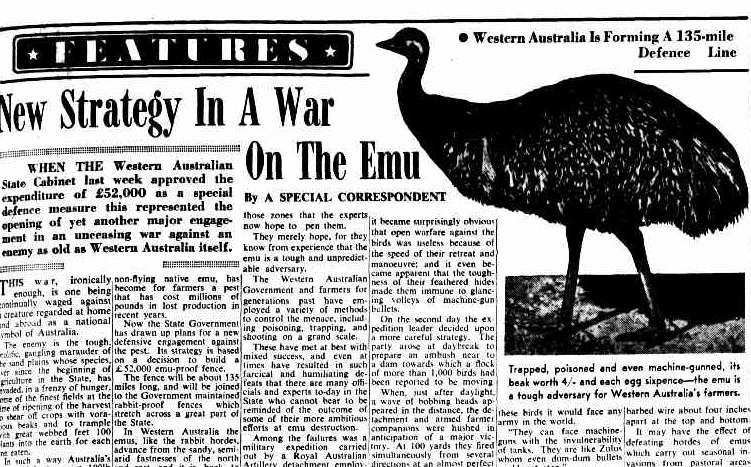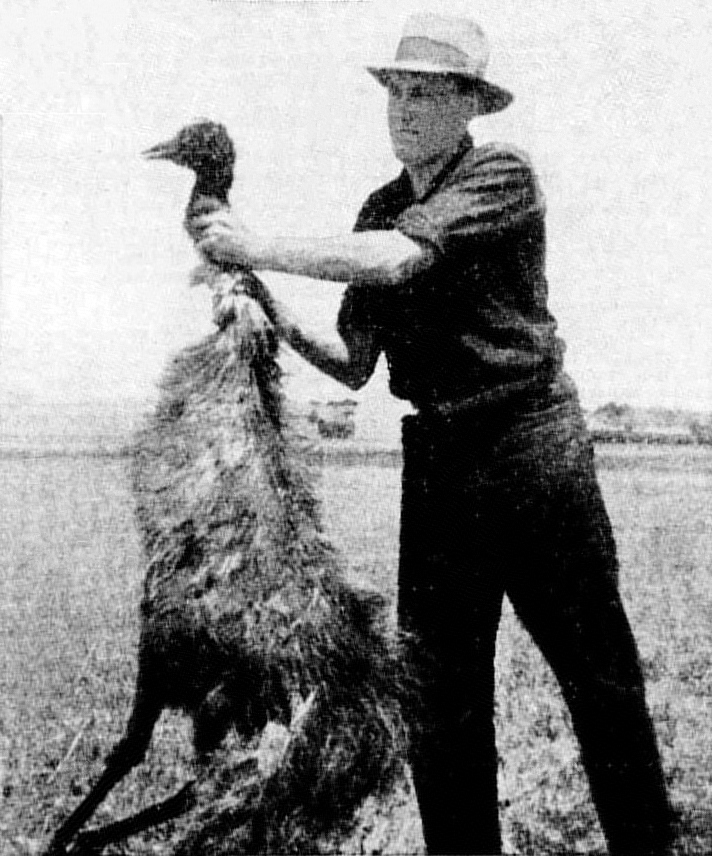In the scorching summer of 1932, Western Australia witnessed one of history’s most peculiar military campaigns. The Australian government found itself waging war against an unexpected enemy – thousands of determined emus marching across the Wheatbelt region.
Following World War I, veteran soldiers-turned-farmers faced a devastating crisis as 20,000 emus descended upon their wheat fields. These massive flightless birds, standing six feet tall, weren’t just casual visitors – they were unwitting invaders destroying crops and wreaking havoc on agricultural lands around Chandler and Walgoolan.

The Emu Army marching across Western Australia. Credit: Footnoting History
The situation became so dire that the farmers approached Sir George Pearce, the Minister of Defence, with an unusual request. They wanted military assistance to combat these feathered adversaries. The government responded by deploying Major Meredith and two soldiers armed with Lewis guns and 10,000 rounds of ammunition.
What followed was nothing short of military embarrassment. The first engagement saw the emus displaying remarkable tactical awareness, splitting into small groups and outmaneuvering the soldiers. Despite the military’s advanced weaponry, the birds proved incredibly resilient and surprisingly strategic in their movements.

A rare military success during the Emu War. Credit: Wikipedia
The emus demonstrated an almost military-like organization. Each group developed its own leader – a towering black-plumed bird that stood watch while others foraged. These sentinel birds would alert their companions of approaching danger, allowing the group to scatter before the soldiers could get within effective firing range.
Major Meredith’s attempt to upgrade their strategy by mounting a gun on a truck failed spectacularly. The vehicle couldn’t keep pace with the speedy birds, and the rough terrain made accurate shooting impossible. After six days of fighting, the military had fired 2,500 rounds but killed only a fraction of their targets.

Australian soldiers preparing their defense against the emu invasion. Credit: IFLScience
The campaign’s ineffectiveness turned into a media spectacle. Major Meredith, attempting to salvage some dignity, compared the emus to Zulu warriors, noting that the birds could face machine guns with the invulnerability of tanks. The operation was temporarily withdrawn on November 8, only to resume again after desperate pleas from the farmers.
The second campaign proved marginally more successful, with soldiers claiming nearly 1,000 kills. However, the emu population remained largely unfazed, continuing their agricultural invasion. This unusual conflict eventually led to the development of more practical solutions, including exclusion barrier fencing and bounty systems.
Today, the Great Emu War stands as a humorous yet significant chapter in Australian history. It demonstrates nature’s resilience and serves as a reminder that sometimes our most sophisticated military solutions are no match for the adaptive capabilities of wildlife. The war’s legacy lives on, inspiring various cultural adaptations and remaining a testament to one of history’s most unusual military engagements.
References:
Emu War – Wikipedia – link
The Emu War – Footnoting History – link
The Great Emu War – IFLScience – link
Categories: Australian History, Do you know, Historical Events, Military History, Wildlife
Tags: Australian History, Emu War, Farming Crisis, Military History, Unusual Wars, Western Australia, Wildlife
Religion: None
Country of Origin: Australia
Topic: Historical Events
Ethnicity: None


